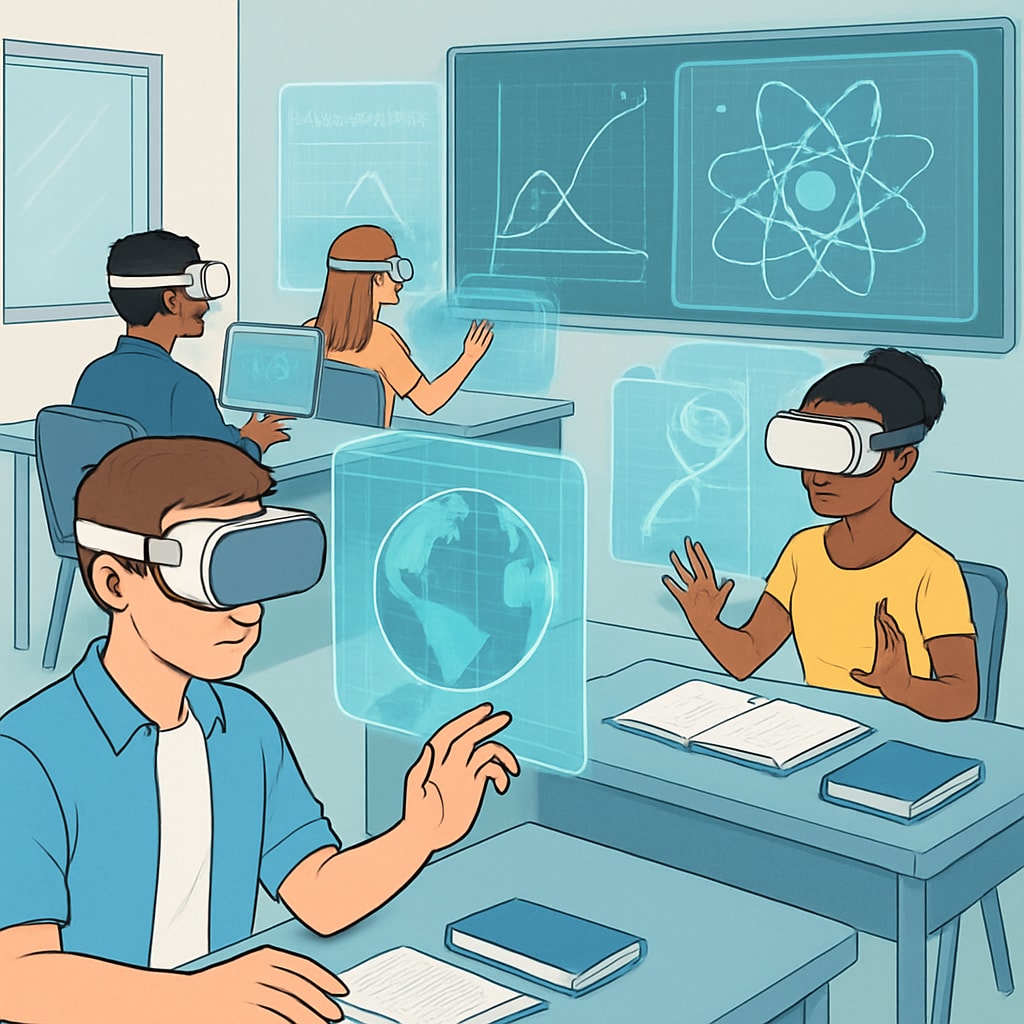Artificial intelligence (AI) is rapidly transforming the landscape of K12 education, driving innovative trends and paving the way for a revolutionary future by 2030. With its ability to personalize learning, enhance teaching efficiency, and foster global collaboration, AI is set to redefine how students experience education. This article delves into the current state of AI in education, examines emerging trends, and envisions the transformative impact of AI on K12 education by 2030.
Current Applications of AI in K12 Education
AI has already begun making significant inroads into classrooms worldwide. From intelligent tutoring systems to adaptive learning platforms, AI tools are enabling educators to cater to diverse learning needs effectively. For instance, platforms like DreamBox and Khan Academy use AI algorithms to analyze student performance and adjust lesson plans accordingly. Moreover, AI-powered chatbots are helping students with instant answers to questions, reducing the dependence on traditional teacher-student interactions.
- Personalized Learning: AI systems can tailor lessons to individual student strengths and weaknesses, enhancing engagement and retention.
- Administrative Efficiency: Automation of administrative tasks, such as grading and attendance tracking, frees up teachers to focus on instruction.
- Accessibility: AI-driven tools make education more accessible for students with disabilities through speech-to-text, text-to-speech, and other assistive technologies.

AI Trends Shaping the Future of Education
As AI continues to evolve, its integration into K12 education is expected to deepen, bringing about transformative changes. Key trends include:
- Immersive Learning Experiences: Virtual reality (VR) and augmented reality (AR) powered by AI will offer students interactive environments for hands-on learning.
- Global Collaboration: AI platforms will connect classrooms across the world, enabling students to collaborate on projects with peers from different cultures.
- Data-Driven Insights: Advanced analytics will provide educators with actionable insights to optimize teaching strategies and curriculum design.
In addition, ethical considerations will grow in importance. Schools will need to address concerns related to data privacy, algorithm bias, and equitable access to AI technologies, ensuring that the benefits of AI are distributed fairly.

Vision for AI-Powered Education by 2030
By 2030, AI is expected to be seamlessly integrated into the fabric of K12 education, creating a transformative learning environment. Here’s what the future may hold:
- Hyper-Personalized Curriculum: AI will design learning modules that adapt instantly to each student’s progress, preferences, and goals.
- Teacher-AI Collaboration: Teachers will increasingly partner with AI systems to focus on mentorship, creativity, and emotional intelligence development.
- Global Equity in Education: AI tools will bridge the gap between developed and developing regions, offering equal access to high-quality resources worldwide.
As a result, education will become more inclusive, efficient, and engaging, preparing students for the complexities of the 21st-century workforce. However, achieving this vision will require collaboration among educators, policymakers, and technologists to address ethical concerns and ensure AI’s responsible use.
Readability guidance: This article uses concise paragraphs, transitions, and lists to summarize key points effectively. Active voice is prioritized, and long sentences are minimized for accessibility.


